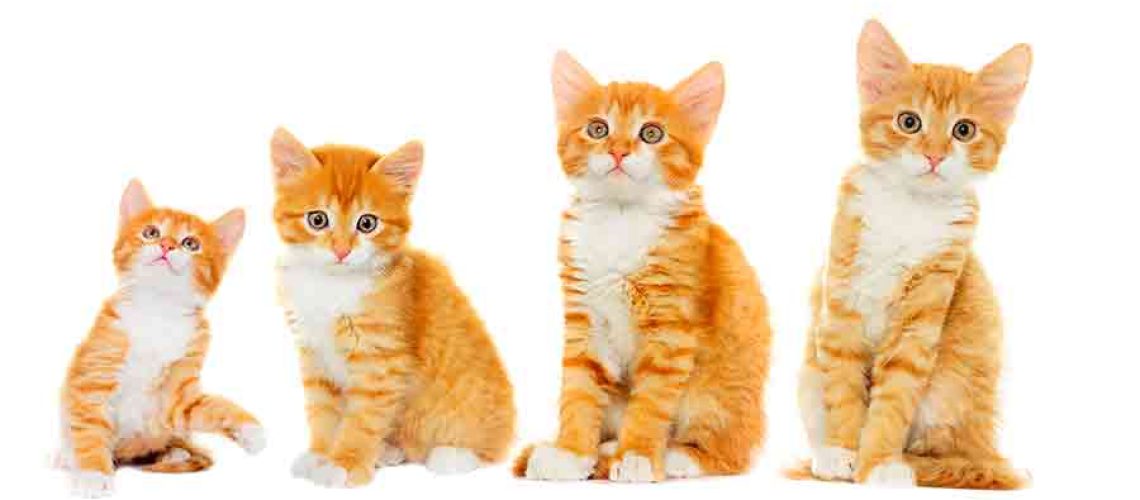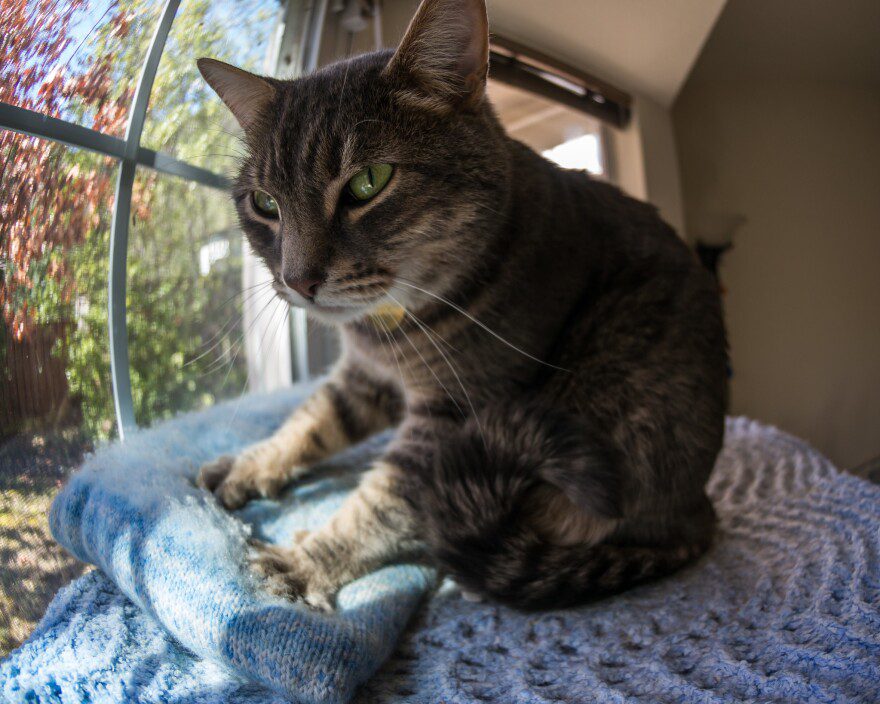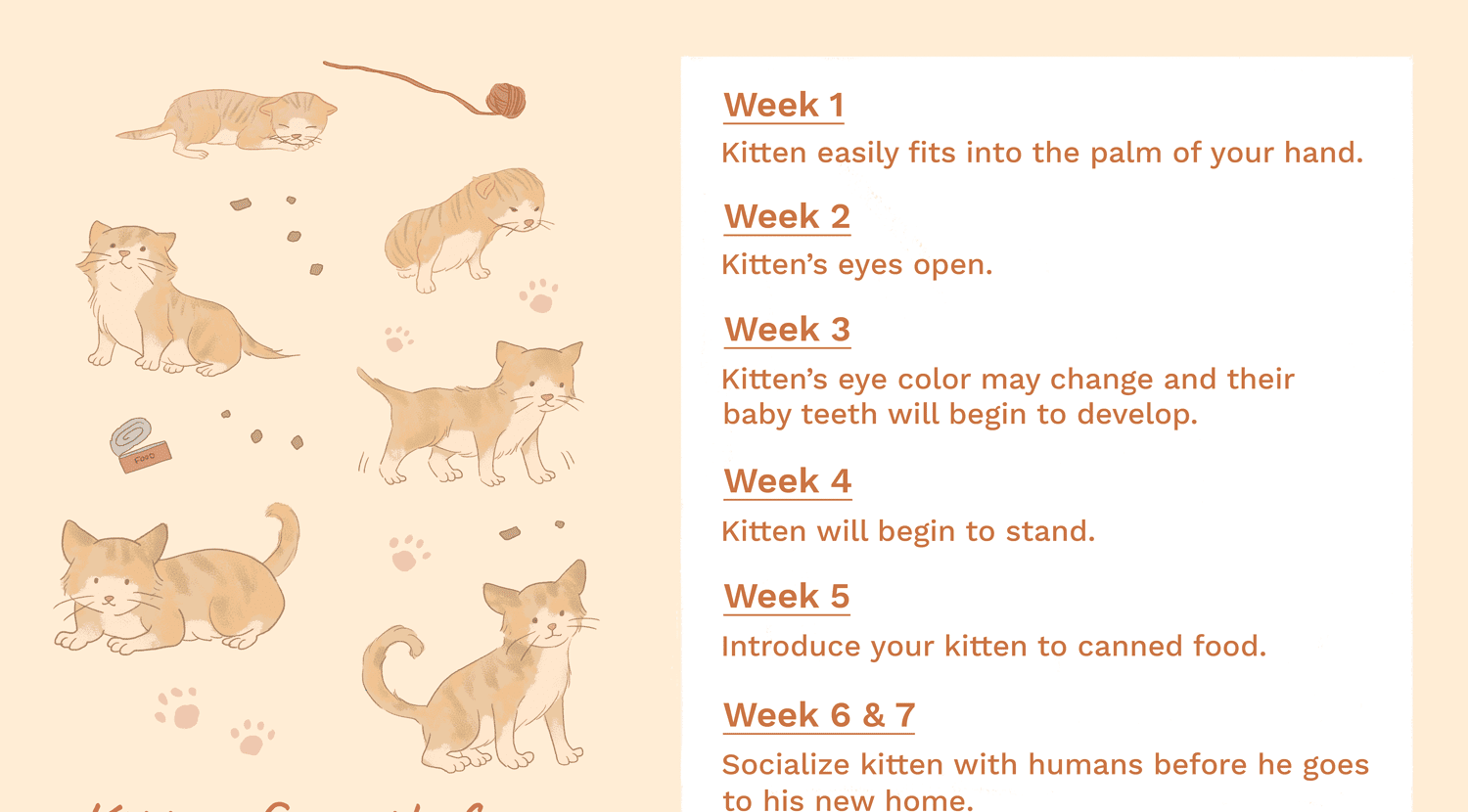Are you curious about how your adorable little kitten transforms into a playful and independent feline? Exploring the fascinating world of kitten development from 3 to 6 months not only allows you to witness their growth firsthand but also equips you with valuable knowledge that can enhance your bond with your furry friend.
Understanding this topic is essential for any cat owner, as it sheds light on the crucial milestones and behaviors your kitten will experience during this transformative period. By delving into this subject, you'll gain insights into their physical and mental development, enabling you to provide the best care possible. So, let's embark on this journey together and unlock the secrets behind your growing kitten's enchanting evolution!
Key Takeaways:
- Kittens at this age are highly energetic and curious, requiring plenty of mental and physical stimulation.
- They should be provided with a variety of toys to encourage play and exercise.
- It is important to continue socializing kittens during this period to ensure they grow up to be well-adjusted adults.
- Kitten-proofing the home is crucial as they may still have a tendency to chew on inappropriate objects.
- Feeding a balanced diet specifically formulated for kittens is essential for their growth and development.
Key Developmental Milestones for Kittens from 3 to 6 Months Old
Physical Growth Milestones
During the period of 3 to 6 months, kittens experience significant physical growth and development. They continue to gain weight and their bodies become more muscular. By the age of 6 months, most kittens have reached about 75% of their adult size. Their bones also strengthen, allowing them to jump and climb with greater agility.
Examples of Physical Growth Milestones:
- Increase in body weight: Kittens may double or even triple their birth weight during this time.
- Development of adult teeth: Baby teeth start falling out and are replaced by permanent teeth.
- Improved coordination: Kittens become more skilled at running, jumping, and climbing.
- Sexual maturity: Female kittens may reach sexual maturity as early as 5 months old, while males may take a bit longer.
Mental and Cognitive Milestones
Along with physical growth, kittens also undergo mental and cognitive development during this stage. They become more curious about their surroundings and engage in exploratory behaviors. Their problem-solving skills improve as they learn how to manipulate objects using their paws.
Examples of Mental and Cognitive Milestones:
- Increased attention span: Kittens can focus on tasks or play for longer periods.
- Learning through play: Kittens develop hunting instincts through interactive play with toys or other animals.
- Object permanence: They start understanding that objects still exist even when they are out of sight.
- Understanding cause and effect: Kittens learn that certain actions result in specific outcomes.
Overall, the developmental milestones achieved by kittens between 3 to 6 months old contribute to their physical abilities, mental sharpness, and overall growth into healthy adult cats.
Behavior Changes in Kittens from 3 to 6 Months Old
Increased Independence
As kittens grow older, they start to exhibit more independent behavior. They may become less reliant on their mother and explore their surroundings with confidence. This newfound independence can lead to a desire for more personal space and less reliance on constant attention from humans.
Examples of Increased Independence:
- Exploring new territories: Kittens may venture further away from familiar areas in search of new experiences.
- Solo playtime: They may engage in solitary play, using their toys or objects they find interesting.
- Self-grooming: Kittens begin grooming themselves, learning how to keep their fur clean and tidy.
Establishing Territory
During this stage, kittens also start to establish their own territory. They mark their scent on objects by rubbing against them or scratching, signaling ownership. This behavior is natural as cats are territorial animals by nature.
Examples of Territory Establishment:
- Scratching furniture or vertical surfaces: Kittens scratch to leave visual and olfactory marks that define their territory.
- Rubbing against objects or people: By rubbing their scent glands against various surfaces, kittens claim ownership.
- Vocalization: They may meow or purr more frequently to communicate territorial boundaries.
Understanding these behavior changes helps pet owners provide the necessary environment and support for kittens as they navigate through this critical developmental stage.
Behavior Changes in Kittens from 3 to 6 Months Old
Understanding the Adolescence Stage
During the ages of 3 to 6 months, kittens go through a crucial stage known as adolescence. Just like human teenagers, they may exhibit some behavioral changes during this time. One common change is an increase in energy levels and playfulness. Your once-cuddly kitten may now be more interested in exploring their surroundings and engaging in interactive play. They might also start testing boundaries and asserting their independence.
Dealing with Challenging Behaviors
As your kitten goes through this phase, you may notice some challenging behaviors emerging. They might become more prone to scratching furniture or biting during playtime. It's important to address these behaviors early on to prevent them from becoming habits. Providing appropriate outlets for their energy, such as interactive toys and scratching posts, can help redirect their behavior. Additionally, consistent positive reinforcement and gentle discipline can teach them what is acceptable behavior.
Helping Your Kitten Develop Social Skills and Interact with Other Animals
Introducing Your Kitten to Other Animals
Socializing your kitten with other animals is crucial for their development into well-adjusted adults. When introducing them to other pets, it's essential to do so gradually and under controlled circumstances. Start by allowing them to sniff each other through a door or gate before progressing to face-to-face interactions. Supervise these interactions closely and reward positive behavior with treats or praise.
Tips for Successful Introductions:
- Keep initial meetings short and gradually increase the duration over time.
- Provide separate spaces for each pet initially, allowing them to retreat if needed.
- Use positive reinforcement techniques when both animals display calm behavior.
- Seek professional guidance if any aggressive behaviors persist.
Recommended Diet for Kittens Between 3 to 6 Months Old and Its Importance
The Importance of a Balanced Diet
During the ages of 3 to 6 months, your kitten is experiencing rapid growth and development. Providing them with a balanced diet is crucial for their overall health and well-being. A high-quality kitten food that is specifically formulated for their age group will ensure they receive the necessary nutrients, such as protein, vitamins, and minerals.
Key Components of a Kitten's Diet:
- Protein: Essential for muscle development and growth.
- Fatty Acids: Promote healthy skin and coat.
- Calcium and Phosphorus: Aid in bone development.
- Vitamins A, D, E, and C: Support immune function.
Health Concerns and Vaccinations for Kittens Between 3 to 6 Months Old
Vaccinations for Disease Prevention
Between 3 to 6 months old, kittens should receive important vaccinations to protect them from common diseases. These vaccines stimulate their immune system to produce antibodies that fight off potential infections. Core vaccines, such as those for rabies and feline distemper, are typically recommended during this period.
Common Vaccines for Kittens:
- Rabies Vaccine: Protects against the deadly rabies virus.
- Feline Distemper Vaccine: Guards against several highly contagious diseases.
- Feline Leukemia Vaccine: Recommended if your kitten will have outdoor access or interact with other cats.
Creating a Safe Environment and Ensuring Well-being for Your Growing Kitten
Making Your Home Kitten-Friendly
To ensure the safety and well-being of your growing kitten, it's essential to create a suitable environment. Remove any potential hazards such as toxic plants, small objects they could swallow, or open windows they could fall from. Provide them with a comfortable bed, litter box, and scratching posts. Consider kitten-proofing electrical cords and securing breakable items.
Tips for a Safe Environment:
- Keep cleaning products and medications out of reach.
- Offer a variety of toys to keep them mentally stimulated.
- Regularly check and clean their litter box.
- Schedule regular veterinary check-ups to monitor their health.
By following these guidelines, you can ensure that your kitten has the best possible start in life and grows into a happy and healthy adult cat.
In conclusion, during the period of 3 to 6 months, kittens go through important physical and behavioral changes. They become more independent, playful, and start exploring their surroundings. It is crucial to provide them with a nurturing environment and proper care to ensure their healthy development.
What age are kittens the hardest?
Between 2 weeks and 3 months of age, your kitten will enter a phase similar to the "terrible twos" in human children. This is when they are most active and may exhibit hyperactive behavior, including zoomies and scratching.
What should I expect from my 3 month old kitten?
During this stage of their development, kittens will start walking, exploring their environment, and even trying out the litter box. Although they won't be able to run or chase after toys just yet, they may show curiosity towards them. They will sleep often and may start engaging in some basic grooming behaviors.
What to expect from a 6 month old kitten?
At this stage, the cat is sexually mature, consuming adult cat food, has completed all of its vaccinations, and you are consistently working on its socialization and training. It can be compared to a teenage human, as it still has some mental development left to do, but physically it resembles an adult cat.
What is the fading kitten syndrome?
Fading kitten syndrome is a condition that affects newborn kittens and leads to their failure to grow and survive, often before they are ready to be weaned. The symptoms of this syndrome vary depending on the underlying cause and can include excessive crying, low body temperature, lack of energy, isolating from their littermates, weight loss, and difficulty with sucking.
What are the terrible twos for kittens?
During the period of 6 months to 2 years, kittens go through their "Terrible Two's" phase where they reach both physical and sexual maturity. While they may start to calm down from their initial high energy levels, they will still be curious and eager to learn and explore, much like human teenagers.
What is the single kitten syndrome?
Single kitten syndrome refers to the concept that when a young kitten is raised with other kittens and cats but is then adopted into a home where it is the only pet, it may exhibit aggression, anxiety, stress, and potentially develop behavioral problems such as chewing or scratching inappropriately and not using the litterbox correctly.

















